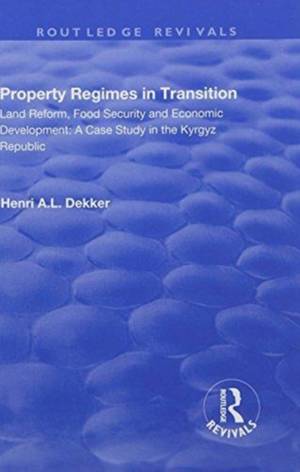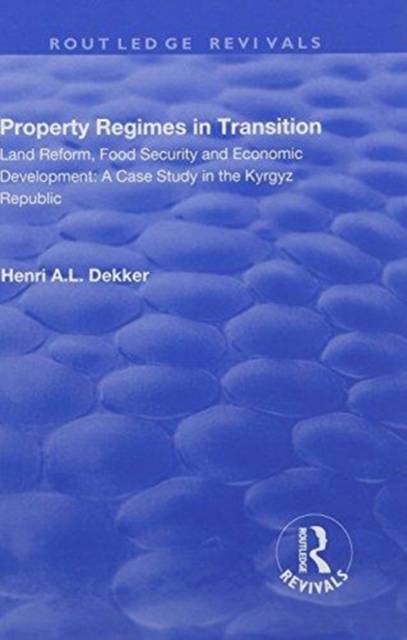
- Afhalen na 1 uur in een winkel met voorraad
- Gratis thuislevering in België
- Ruim aanbod met 7 miljoen producten
- Afhalen na 1 uur in een winkel met voorraad
- Gratis thuislevering in België
- Ruim aanbod met 7 miljoen producten
Property Regimes in Transition, Land Reform, Food Security and Economic Development: A Case Study in the Kyrguz Republic
A Case Study in the Kyrguz Republic
Henri A L DekkerOmschrijving
This title was first published in 2003. Many former communist republics strive to adopt a market economy in which the privatisation of landed property is a key element. Generally, it is expected that by doing so, economic development will take off, improving food security and decreasing rural poverty. The relationship between changing land regulations, economic development and poverty is complex and yet little understood. With land reform, governments in transitional economies expect to achieve economic growth and thus alleviation of rural poverty. Nowadays, there is ample research to prove that, to be effective, land policy reforms need to be complemented with institutional reforms, and rural development activities. It puts forward a model for rapid assessment of project progress in which macro-economic indicators are applied in a systematic way to give insight to concepts such as land tenure security and food security and to provide warning signals for less-desired developments as a result of project implementation.
Specificaties
Betrokkenen
- Auteur(s):
- Uitgeverij:
Inhoud
- Aantal bladzijden:
- 264
- Taal:
- Engels
- Reeks:
Eigenschappen
- Productcode (EAN):
- 9781138715639
- Verschijningsdatum:
- 8/06/2018
- Uitvoering:
- Hardcover
- Formaat:
- Genaaid
- Afmetingen:
- 154 mm x 219 mm
- Gewicht:
- 452 g

Alleen bij Standaard Boekhandel
Beoordelingen
We publiceren alleen reviews die voldoen aan de voorwaarden voor reviews. Bekijk onze voorwaarden voor reviews.












